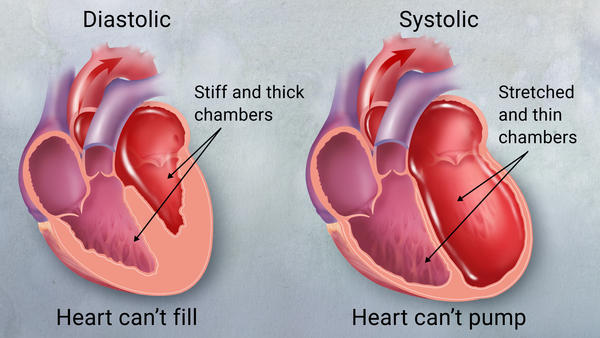
1403/05/10 10:31:57
Heart failure
The heart is a distinct type of muscle different from other muscles in the body, dedicated to pumping blood into the blood vessels. This way, blood flows under pressure through the vessels, delivering food and oxygen to various organs in the body. There's always a precise system in place to regulate the heart's activity and adjust the conditions of the vessels, maintaining a balance between the tissues' needs and the amount of blood supplied to them. A healthy heart can maintain this balance under different conditions. For instance, during physical activity, when some organs require more blood, the heart and blood vessels respond to the controlling system and adequately meet the body's needs. Heart failure begins when this balance is disrupted. In many cases, a heart disease leads to varying degrees of imbalance. However, the heart's reserve capacity helps address this problem. This condition occurs when, due to heart dysfunction, this muscle is unable to pump enough blood with adequate pressure to the vessels. Under these circumstances, the body's organs do not receive enough oxygen-rich blood as usual.
The causes of this disease are based on: underlying causes, such as congenital or acquired heart defects that lead to heart muscle dysfunction (valvular issues, coronary ischemia and heart attacks, heart muscle disease, etc.).
Exacerbating causes include specific factors or changes that worsen heart failure, such as poor nutrition, anemia, infection, hyperthyroidism, high blood pressure, irregular heart rhythms, and coronary ischemia leading to heart failure.

Symptoms of heart failure
1- Shortness of breath: This is the most common complaint among patients. Initially, they only experience it during activity, but as the disease progresses, they report this symptom even at rest. Some of these individuals feel more short of breath when lying down, and sitting up alleviates their problem. Sometimes, shortness of breath disrupts their sleep, waking them up at night with breathlessness and coughing. In these cases, sitting might not provide quick relief.
2- General weakness: This is a common symptom that occurs due to reduced blood flow to the body's muscles.
3- Swelling of the legs: This is typically seen symmetrically and during the middle of the day. The socks of these individuals leave impressions on their legs.
Treatment
Eliminating the aggravating cause and addressing the underlying issue requires both physical and mental rest for these individuals. Both approaches will lead to reduced heart activity and a significant improvement in their condition. It is also recommended to consume smaller meals. One of the first recommendations for these patients is to limit daily salt intake, as this has a very positive effect on their recovery process. For obese patients, it's important to correct any excess weight, as this will reduce the strain on the heart. Additionally, a balanced diet should be maintained to prevent any nutritional deficiencies. Medication will vary depending on the severity of the condition and should be prescribed by a doctor.
Recommendations
-
Consult your doctor as soon as you notice any initial symptoms, such as shortness of breath, early fatigue, nighttime coughing, or swollen legs.
-
Avoid salt as much as possible.
- Do not take other medications, especially home remedies, without consulting your doctor. If symptoms of heart failure occur after starting a new medication, inform your doctor immediately.
